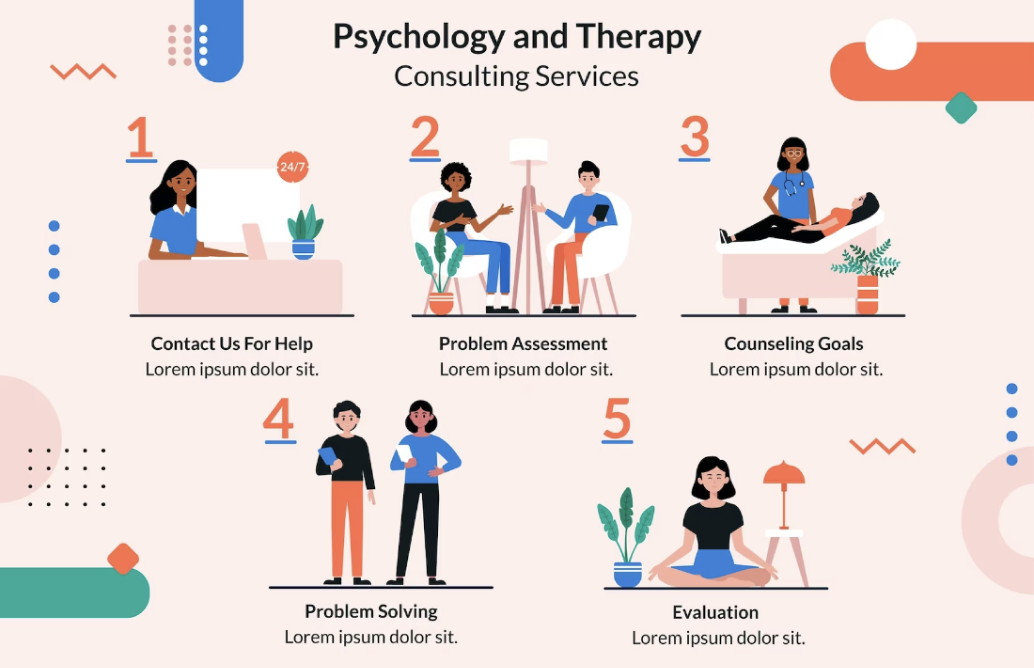It can be challenging to look for a therapist as a transgender, nonbinary, or gender-diverse person. Like anyone else, you’re looking for a good therapeutic fit: someone who takes your insurance plan, someone who is licensed in the state you live in, someone who practices a preferred modality like cognitive behavioral therapy (CBT) or eye movement desensitization and reprocessing (EMDR).
However, you’re also looking for a therapist who knows more than the basic gender 101. curriculum. It’s simply not enough for providers to just use the correct pronouns and names, even though many providers don’t even do the absolute bare minimum of that. Instead, transgender-competent mental health care involves offering specialized therapeutic approaches tailored to gender-diverse experiences, addressing gender dysphoria, navigating transition-related issues, and managing mental health concerns like anxiety or depression that may arise due to societal stigma or discrimination.
We’re so glad you’ve made it this far to this article. Research is an important part of your journey to finding a trans-competent therapist. Arming yourself with knowledge helps you advocate for yourself to receive the quality mental health care you deserve. In this article, we’ll discuss the history behind the challenges of finding trans-competent mental healthcare; then, we’ll discuss the many benefits of having trans-competent mental healthcare.
Challenges in finding trans-competent mental healthcare
If you’re having trouble finding a trans-competent therapist, it’s not you. Systematically, there is a history of why gender-diverse people have barriers to receiving quality mental health care.
Historically, therapy hasn’t been welcoming to the entirety of the LGBTQ+ community. Conversion therapy has been weaponized to promote harmful, pseudoscientific methods to “change” a person’s sexual or gender identity. Conversion therapy, thankfully, has been rejected by mainstream medical and mental health organizations for decades. According to the Human Rights Campaign, many states, including New York, have laws or regulations banning this harmful practice.
Additionally, transgender people face another challenging layer to therapy. Historically, the gatekeeping model of gender-affirming care requires transgender, nonbinary, and gender-diverse people to seek mental health counseling or a psychiatric assessment before receiving gender-affirming care. Although the gatekeeping model isn’t necessarily a barrier to getting mental health care, it can be uncomfortable and awkward to see a therapist who adheres to this problematic framework. Fortunately, New York is an Informed Consent state for gender-affirming care, meaning a patient must be given informed consent about gender-affirming care (such as hormone therapy, or gender-affirming surgery) prior to receiving it. The informed consent model trusts that transgender, nonbinary, and otherwise gender-diverse people can make their own informed healthcare decisions.
Likewise, Kip Therapy believes in the informed consent model of gender-affirming care. While our organization doesn’t offer gender-affirming medical care services—like hormone therapy and gender-affirming surgery—directly, our therapists believe patients when they say they are transgender, nonbinary, or gender diverse. Additionally, while we recognize this is a heavy history for patients to sit with, don’t lose hope; the payoff is certainly worthwhile. Keep reading to learn about the benefits of transgender-competent mental healthcare.
Benefits of working with a transgender-competent therapist
Now that we’ve dissected some complicated history, we can have a nuanced understanding of how therapy can benefit you as a transgender, nonbinary, or otherwise gender-diverse person.
Tailored Treatment
Trans-competent therapists have the expertise to offer specialized treatment plans that address specific challenges related to gender dysphoria, transitioning, and/or navigating societal and familial pressures. These treatment plans often include trauma-informed therapy.
Reduced Stigma
A transgender-competent therapist helps shape compassionate, affirming environments to allow you to show up without fear of judgment or misunderstanding. Having a safe, therapeutic space can help validate your experiences, even if you don’t feel validated outside of therapy.
Access to Resources
Trans-competent therapists can help facilitate access to community resources, support groups, and other connections to build your support network. While these resources don’t replace therapy, they can supplement it.
Transgender Empowerment
Working with a trans-competent therapist can empower you to embrace your identity, develop coping strategies, and navigate life’s challenges with confidence. If you’re undergoing a medical transition, this empowerment can help guide you in connecting your new identity.
Reduced Social Isolation
Through the therapist’s understanding and connections, especially at an organization like Kip Therapy, you may feel less isolated and more connected to a supportive community.
Improved Health & Wellness
The long-term benefits of transgender-competent mental health care cannot be overstated. Overall, the support and guidance from a transgender-competent therapist can contribute significantly to the mental health and well-being of gender-diverse patients over their entire lifetime.





